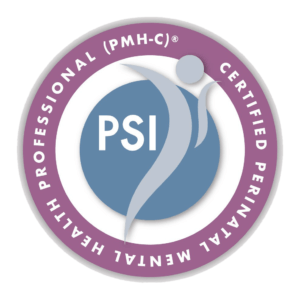
If you are struggling to focus or stay organized in your daily life, you are not alone. Many adults experience these challenges, and for some, it could be a sign of Attention Deficit Hyperactivity Disorder (ADHD).
Let us explore the process of ADHD testing for adults, highlighting common symptoms and how proper testing and effective treatment can guide you on your path to wellness.
Understanding ADHD in Adults
ADHD is often associated with children, but it is becoming increasingly recognized among adults. It is a neurodevelopmental condition that affects attention, impulse control, and hyperactivity. The National Institute of Mental Health (NIMH) estimates that 4.4% of adults in the United States aged 18 to 44 are affected by ADHD.
Many adults with ADHD were not diagnosed in childhood, leading to difficulties in various aspects of their lives. Early detection is essential, as it can open the door to effective management strategies and a better quality of life.
ADHD Symptoms in Adults
Recognizing ADHD symptoms in adulthood can be challenging, as they may be mistaken for other issues like stress or anxiety. Individuals with ADHD may exhibit:
- Inattention: Struggling to stay focused on tasks, frequently losing items, and making careless mistakes at work or home
- Hyperactivity/Impulsivity: Feeling restless, having trouble sitting still, impatience, or talking excessively
- Combined Presentation: Some adults experience a combination of inattention and hyperactivity/impulsivity, impacting their daily routines and relationships
Symptoms occur because the brain does not produce adequate levels of certain neurotransmitters. As a result, those with ADHD may seek stimulation through excessive physical activity or by frequently shifting their attention.
Adult ADHD symptoms can encompass a range of challenges, including:
- Disorganization and difficulty prioritizing tasks
- Impulsiveness (acting before thinking)
- Difficulty maintaining attention on tasks
- Poor time management
- Restlessness or excessive activity
- Difficulty multitasking
- Inadequate planning
- Difficulty coping with stress
- Frequent mood swings
- Challenges in following through and completing tasks
- Short temper
Understanding these symptoms can be the first step toward seeking help and transforming your life.
The Importance of Proper Testing
Proper ADHD testing is crucial for adults who suspect they have the condition. While self-assessment tools can provide some insights, they are not a substitute for professional evaluation. Testing for adults differs from children, focusing on comprehensive assessments that consider medical history, life experiences, and co-existing conditions.
There is no single test that can definitively confirm a diagnosis of ADHD. However, a trained healthcare provider, such as a psychiatrist, can use a variety of methods to diagnose ADHD. The diagnostic process typically involves several key steps:
- Physical Examination: This helps to rule out other potential causes of your symptoms
- Information Gathering: This includes asking questions about your current medical issues, personal and family medical history, and the progression of your symptoms
- ADHD Rating Scales or Psychological Tests: These tools aid in collecting and evaluating information regarding your symptoms
- Behavioral Observations: A clinical evaluation may include observations of your behavior in different settings and situations
The information is then evaluated to determine whether specific diagnostic criteria for ADHD have been met. Additionally, any co-existing conditions can be identified, such as depression, anxiety disorders, or substance abuse. This thorough approach ensures accurate diagnosis and effective treatment planning.
Challenges Faced During Testing
Undergoing ADHD testing can be daunting for many adults. Emotional stress, fear of judgment, and logistical issues can be significant hurdles. It is vital to approach the process with an open mind and seek support from loved ones to overcome these challenges. Choosing a provider with specialized training and experience in supporting adults with ADHD is also important.
The ADHD Testing Process
Getting tested for ADHD involves the following steps.
Finding a Qualified Practitioner
Seek a provider experienced in adult ADHD assessments. My Buoyant Health offers expert practitioners who understand the complexities of ADHD in adults.
Initial Evaluation
The initial evaluation includes a detailed discussion of your medical history and life experiences, along with current symptoms and the symptoms you had when you were a child. It helps to identify potential ADHD signs and other factors that may affect your condition.
Comprehensive Assessment
A series of tests may be conducted to evaluate cognitive functions, attention, and impulse control. These assessments provide valuable insights into your unique challenges. Questionnaires completed by loved ones can also help to provide a more comprehensive perspective.
Follow-Up and Diagnosis
After the evaluation is completed, a diagnosis can be made based on the diagnostic criteria outlined in the Diagnostic and Statistical Manual of Mental Disorders (DSM-5). Your practitioner will take the time to thoroughly review your results and provide a clear explanation of your diagnosis.
Interpreting Test Results
It is important to remember that ADHD is a spectrum, and symptoms can vary widely among individuals. Some medical conditions and mental health disorders can have similar symptoms to those of ADHD, so a thorough evaluation is essential. Understanding your test results is a crucial step toward finding effective strategies for management and growth.
ADHD Treatment
Receiving an ADHD diagnosis can be a turning point, providing clarity and direction for your future. Popular treatments for ADHD include the following.
Behavioral Therapy
Behavioral therapy is a type of talking therapy designed to equip individuals with strategies and practical skills to improve focus, organization, and impulse control and manage ADHD symptoms in day-to-day life.
Medication
Prescription medicines like stimulants and non-stimulants can be effective for managing ADHD symptoms. They help to regulate neurotransmitters in the brain associated with attention and impulse control.
Lifestyle Adjustments
Implementing changes in your daily routine, such as creating schedules or organizing tasks into manageable steps, can provide structure, reduce impulsivity, and enhance focus. Visual aids and reminders can also help you to stay organized and on track.
Building a Supportive Environment
Surrounding yourself with understanding and supportive people who can provide encouragement and assistance can help you better manage symptoms. Workplace accommodations, such as mentoring or taking exercise breaks, can help you manage your ADHD symptoms better at work.
Every person’s ADHD journey is unique, and finding the right approach is key to thriving. ADHD testing is a valuable tool for adults seeking clarity and understanding in their lives. By recognizing symptoms, undergoing proper testing, and exploring treatment options, individuals with ADHD can pave the way to a better future.
ADHD Testing in Phoenix, AZ
If you suspect you have ADHD, reach out to the compassionate practitioners at My Buoyant Health for support. At My Buoyant Health, we are dedicated to providing personalized care and support to individuals with ADHD and their families. Our compassionate practitioners provide a safe space to discuss your concerns and guide you through the testing process with empathy and understanding.
Our services are designed to address the unique challenges faced by adults with ADHD, offering expert assessments, compassionate treatment plans, and ongoing support. By working together, we can help you discover effective strategies and work toward a brighter, more fulfilling life.
To begin your journey towards well-being, contact us today at (602) 510-6582 or use our appointment request form. We look forward to serving you!




